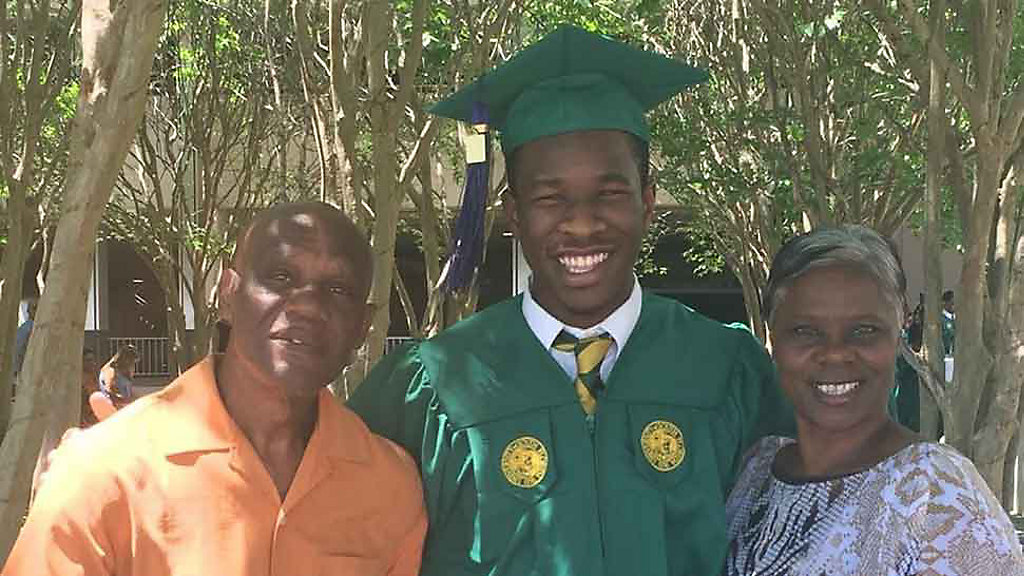
A Winter Haven man who was adopted from foster care as a child is doing something remarkable. He’s working on a postgraduate degree entirely on the state of Florida’s dime, and it’s all thanks to having been adopted.
Victor Sims’s parents, Violet and Ronald, could not have children of their own, so they looked into foster care. They then decided they wanted to adopt children.
“It was crazy, but it was fun,” Violet said about the experience. All seven of the children the couple adopted are now grown up.
Of course, the state provides some financial help to foster parents and families that actually adopt foster children. But what you may not know is that Florida has a program that pays the tuition at state universities, community colleges and vocational schools for students adopted from foster care.
Victor is taking advantage of that program in a major way. He has already graduated from USF with a Bachelor’s degree and is working on a Masters degree. He has no college debt.
“Now that’s exciting,” he said with a laugh. “When I graduated with my Bachelor’s I was talking with one of my closest friends and he was talking about how he has $60,000 in debt. All I could think of was, ‘thank God I was adopted.’”
The free college program is available for children adopted from foster care through the age of 28.
By Rick Elmhorst Polk County
PUBLISHED 5:00 AM EDT Jul. 25, 2019

